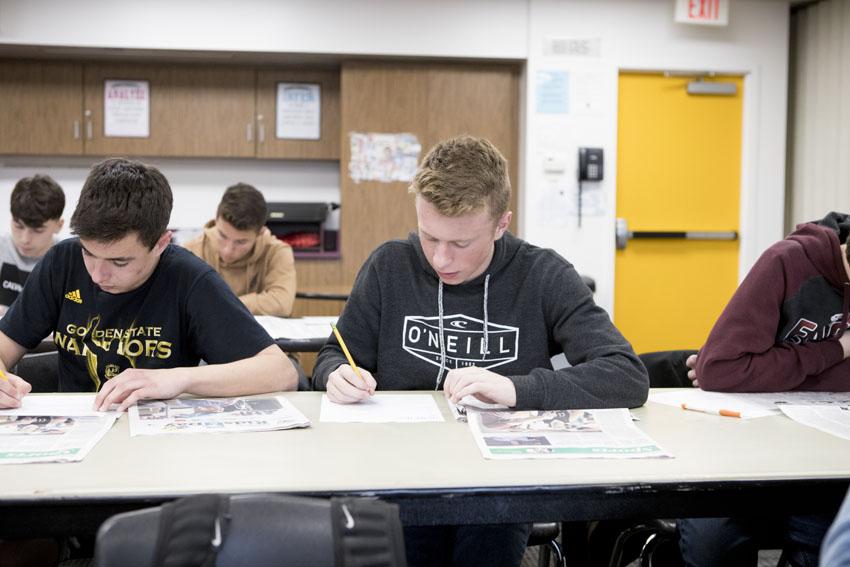Electronics, sleep schedules affect performance in classes

As students step into fall sports and activities, they are challenged to balance schoolwork and extracurriculars. In this electronic age, many teens rely on video games, social media and television to occupy free time.
According to Quartz.com using information from a Pew Research Center study, teenagers spend an average of nine hours a day online. During the week, school takes eight hours of students’ days, leaving the following nine available to spend chatting or watching videos instead of studying or doing homework.
The second quarter begins, as some students are left eager to bring grades up and spend time on new assignments. Busy students looking to improve grades are likely to sacrifice sleep, but this can hurt G.P.A.
Studies by Brigham and Women’s Hospital in 2017 said students require nine and a half hours of sleep to fully function. Furthermore, an irregular sleep schedule can be just as harmful as pulling consistent late-nighters. Students with busy schedules should consider if certain assignments are worth staying up late.
Even after cutting out distractions, many students still burn the midnight oil on homework. A study published by the American Psychological Association found that an increasing number of students struggle with perfectionism.
Just as missing assignments hurt grades, spending too much time on homework can be detrimental. Besides cutting in on sleep, these studies connect perfectionism to various health problems, including anxiety and other mental health issues.
The following tweet features The New York Times cautioning people on the negative effects of sleep deprivation.
Getting less than 6 hours of sleep a night, or more than 9 hours, might increase the risk for heart attack https://t.co/6xHFQXgTOg
— The New York Times (@nytimes) September 11, 2019
For students struggling to improve test scores, finding a tutor may be beneficial. Both adult and peer-to-peer tutoring have been found to improve academic performance. CSF offers a free tutoring service for students in need.
Mindset is important when doing work of any kind. If one thinks of themself as capable of reaching a goal, they are more likely to achieve it compared to people who say they can not do it. Positive attitudes, such as avoiding complaining, determination and finding the fun in work, impacts mood and mental stability.

Oxford Royale Academy recommends in the midst of lowering grades, to find the root of the problem before immediately trying to fix it. Besides a positive attitude, working out where one falls short is the second most important step when improving grades.
Studying requires time, concentration and patience. To ensure effective studying, below are some tips and tricks:
- Isolate from distracting people
- Hold back on electronic use, especially at night
- Refrain from a negative attitude
- Make homework a higher priority than video games or social media
- Take breaks
- Find a tutor
Though high schoolers face many academic challenges, achieving high grades is within the reach of everyone.
What are some of your studying techniques? How do you stay focused? Share your comments in the section below!
For another editorial, read EDITORIAL: Students impact public discussion, face attacks. For another article, read Ezekiel Fuller displays work ethic through on campus, off campus activities.








Zach Aguirre • Oct 25, 2019 at 11:59 am
This article was amazing. Keep writing great articles.
mason Blowers • Oct 25, 2019 at 8:08 am
What an AMAZING job guys keep up all the hard work. You guys are always writing really good articles that keep the students and parents involved with the school.